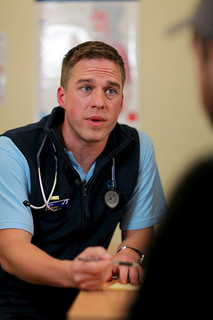Poor Communication Leading Cause of Medical Negligence
Poor communication among hospital staff increases the chances of a patient injury.

Medical malpractice is a surprisingly common occurrence across the United States — and it’s understandable that patients want to know why. After all, healthcare providers are expected to complete rigorous education and training before ever interacting with a patient. In our experience, we have found that poor communication is often to blame for a doctor or nurse making an error that could have life-altering consequences.
Hospitals Are Not Immune to Error
According to a leading hospital accreditation agency, The Joint Commission, more than 60% of medical malpractice cases that result in injury or death are caused by miscommunication or inadequate communication between medical staff. Such miscommunication is considered a form of medical negligence. Unfortunately, errors such as this are a lose-lose situation: the patient suffers serious injury or possible death and the hospital faces a medical malpractice claim that could cost millions.
Examples of Hospital Miscommunications
When you visit a hospital, your medical team is larger than you think. Your care may be handled by doctors, nurses, pharmacists, technicians, specialists and others. All these parties are responsible for communicating about your care in a clear and timely manner, but a single human error may prevent the right information from getting to the right person.
Examples of hospital communication errors include:
- Failure to notify a doctor of a patient’s test result
- Improper data entry on a patient’s medical record
- Inadequate documentation for a patient’s condition
- Providing the patient with incorrect or incomplete instructions
Medical Negligence Case Study
A 2013 study conducted by Boston Children’s Hospital showed that nearly 50% of medical errors can be attributed to miscommunication or lack of communication during patient hand-offs. The study revealed that most medical errors occurred when a patient is handed over from one care provider to another. This typically happens at the end of a shift.
During the study, the hospital adopted new measures to improve communication during hand-offs, leading to a drop in miscommunications. After the new hand-off procedures were implemented, medical errors reduced by nearly 50%. This correlation between communication and care is a reminder that simple mistakes can lead to major consequences.
Proving Miscommunication
In a medical negligence case, you must prove that an error occurred and that the error directly led to harm. This is not as obvious as it may seem. Healthcare is highly nuanced and breakdowns in communication are not always obvious. Your attorney will spend time combing through your medical records to identify possible lapses in communication. Your attorney may also invite experts, such as doctors or nurses, to review your case and determine how your medical team may have deviated from the standard of care. As always, reach out to our medical negligence attorneys if you believe your treatment suffered due to a lack of communication.
photo credit: DIBP images via Flickr
Missouri Medical Malpractice Lawyer
If you have suffered as a result of medical malpractice, contact our legal team right away. Waiting to seek legal representation can prevent you from filing a claim and receiving the compensation you deserve.
Contact Zevan Murphy today.
